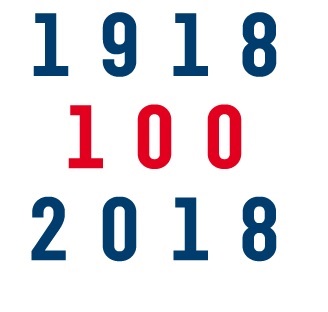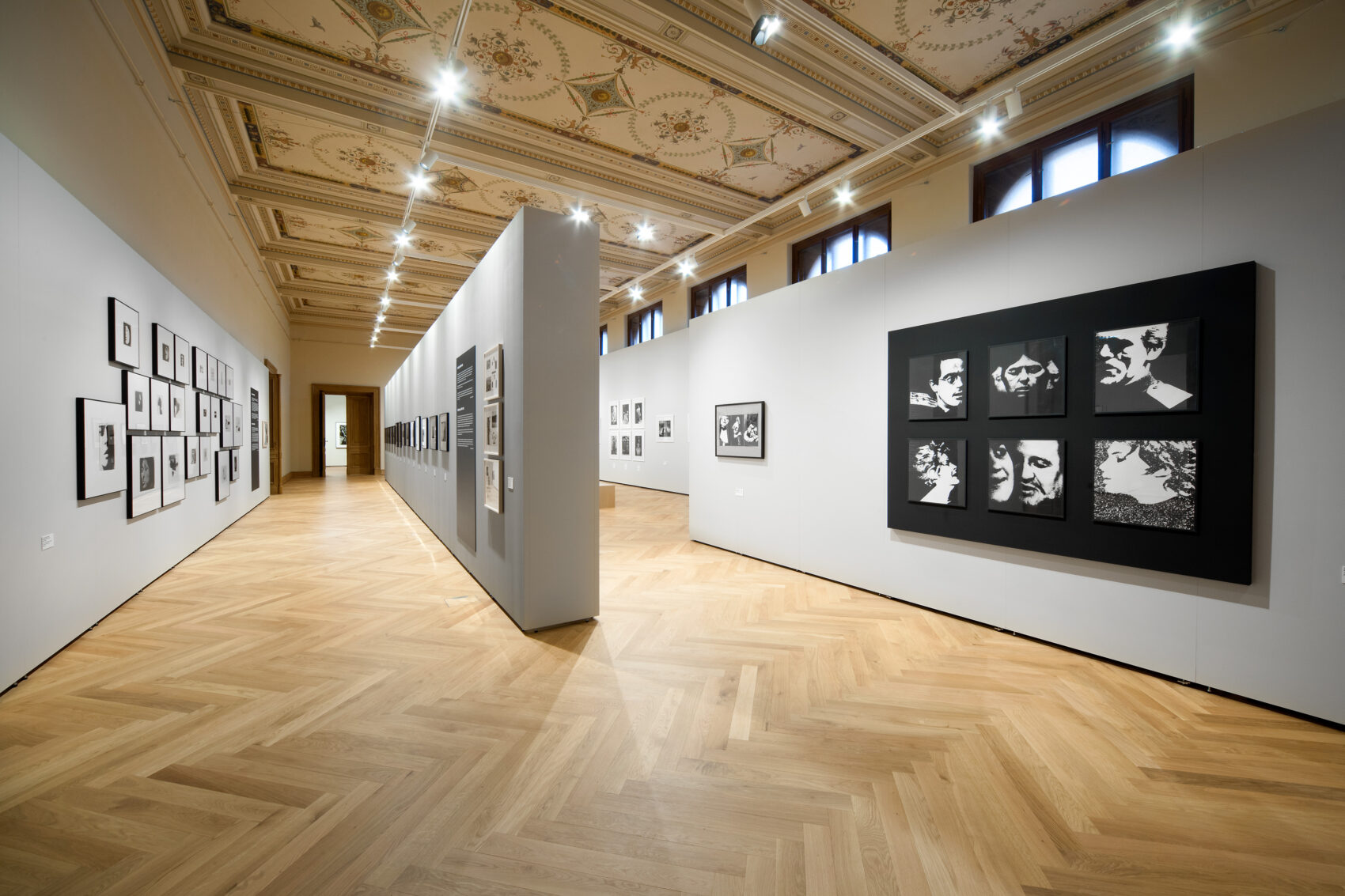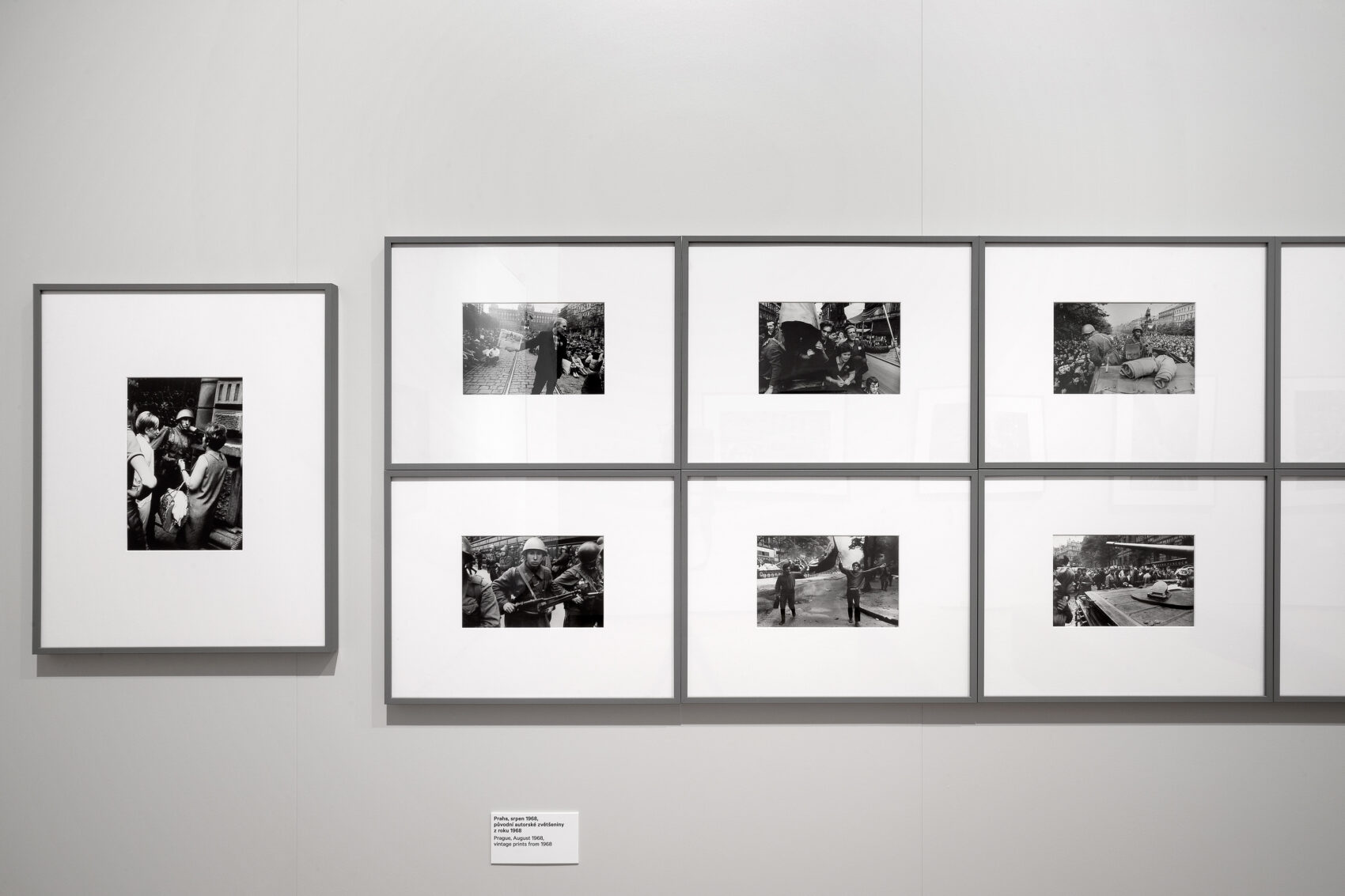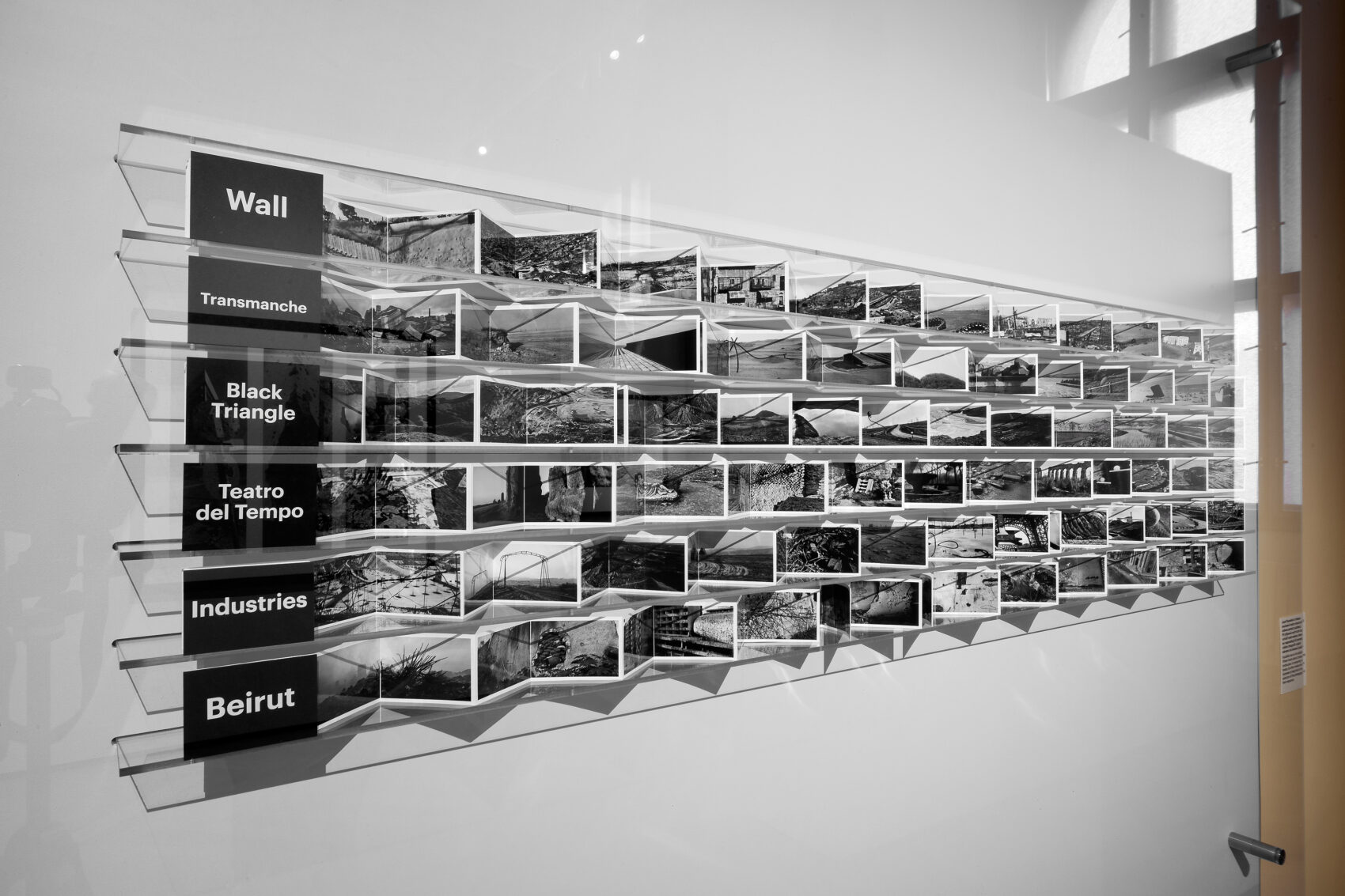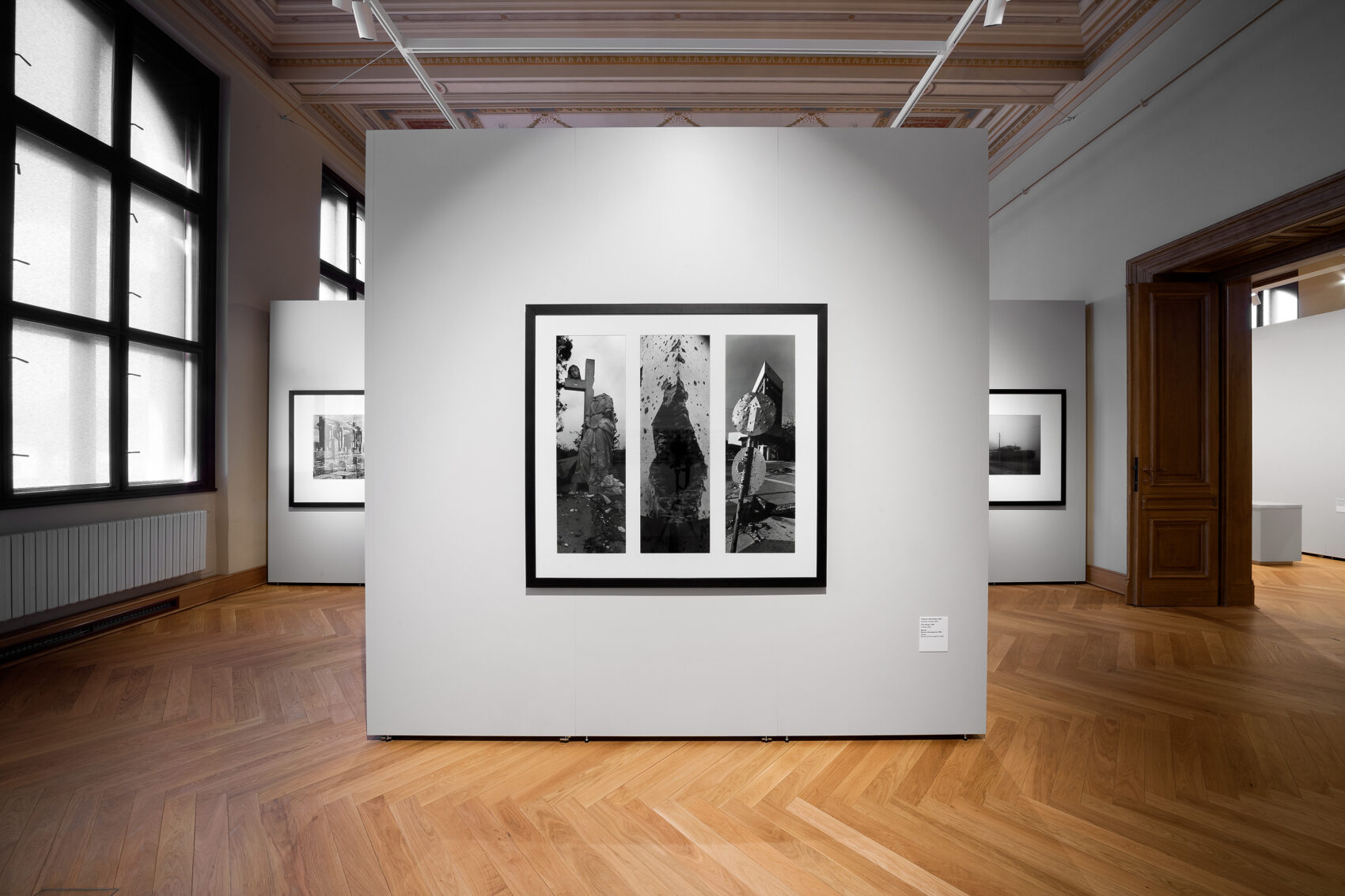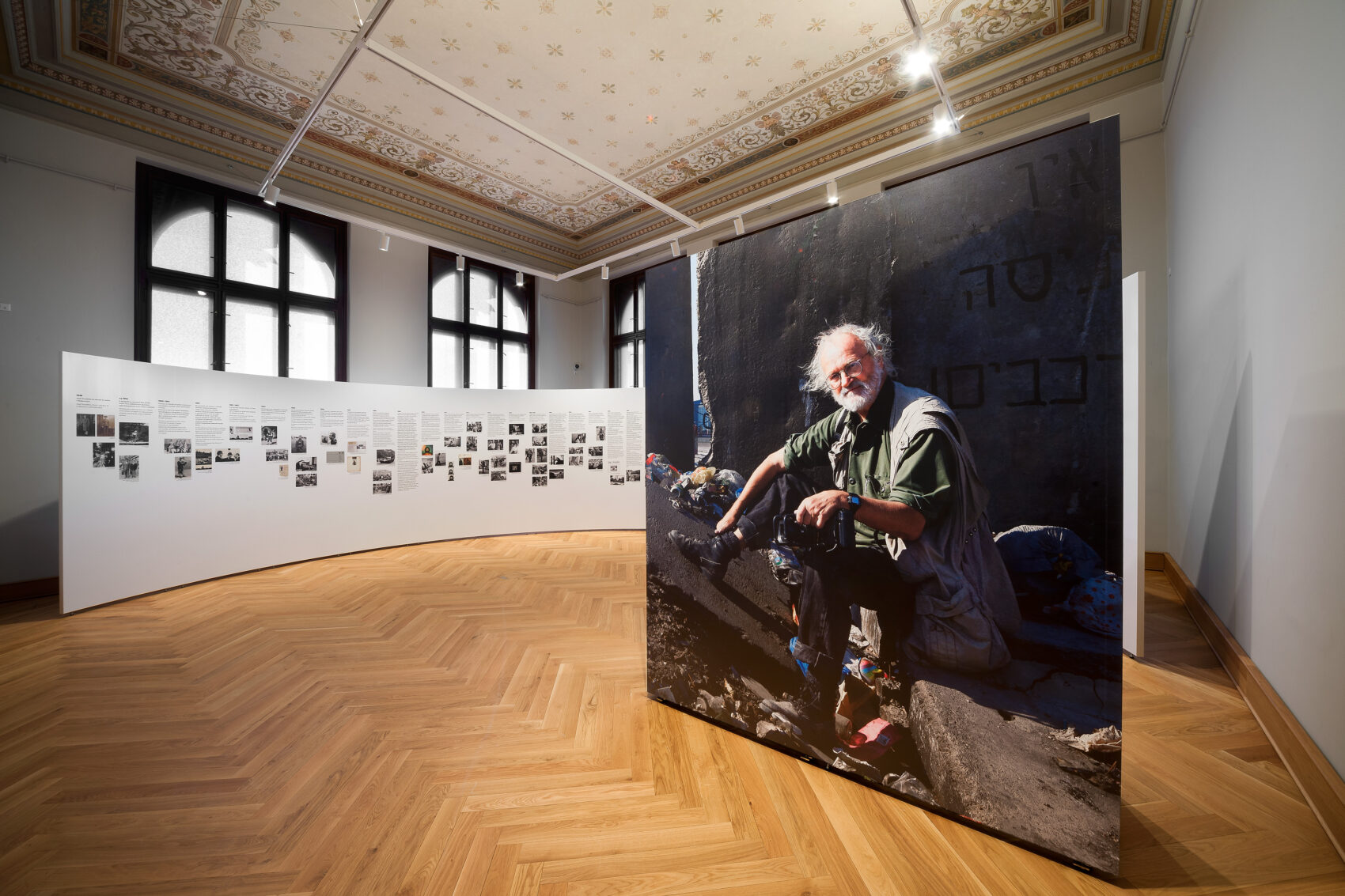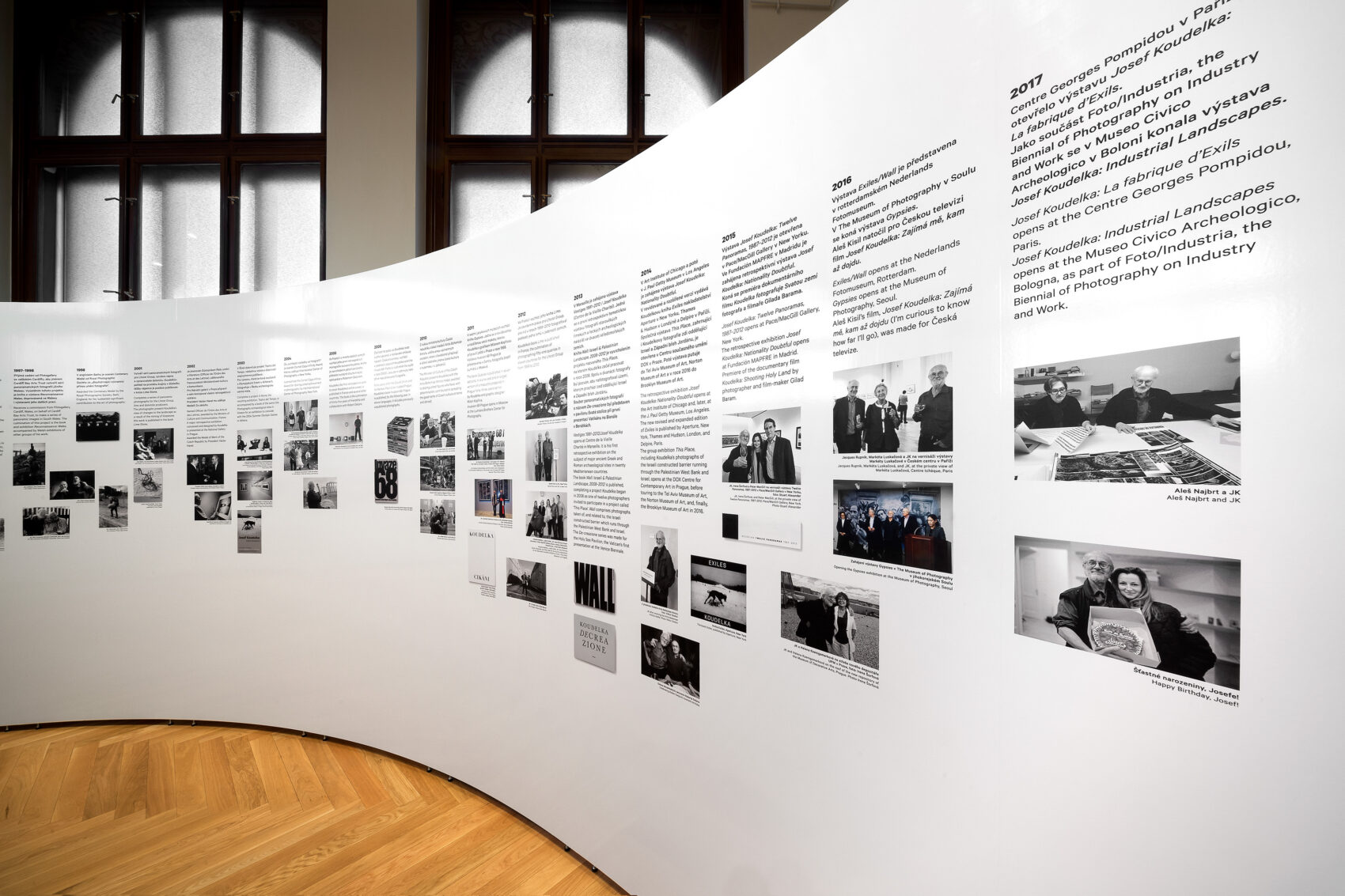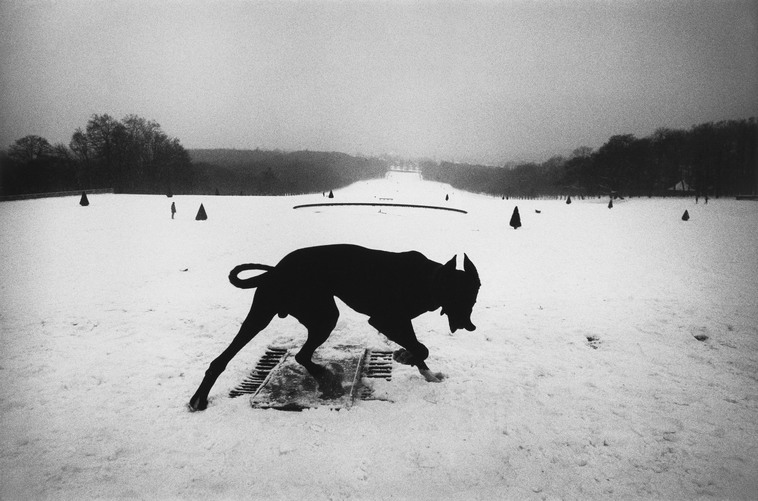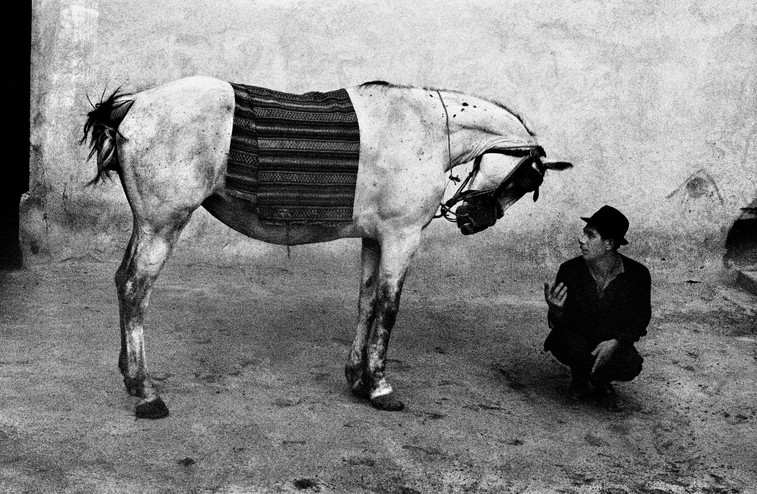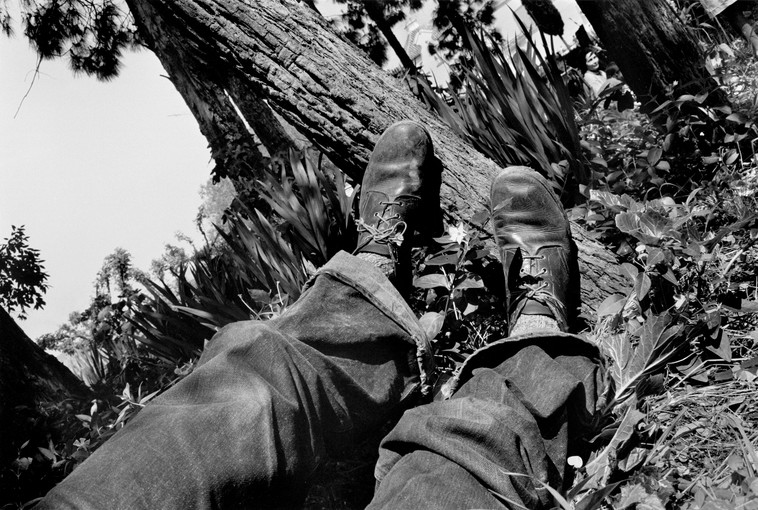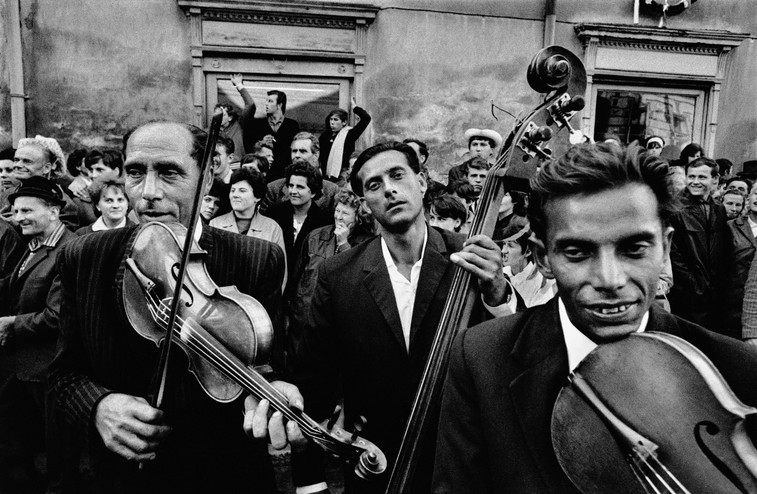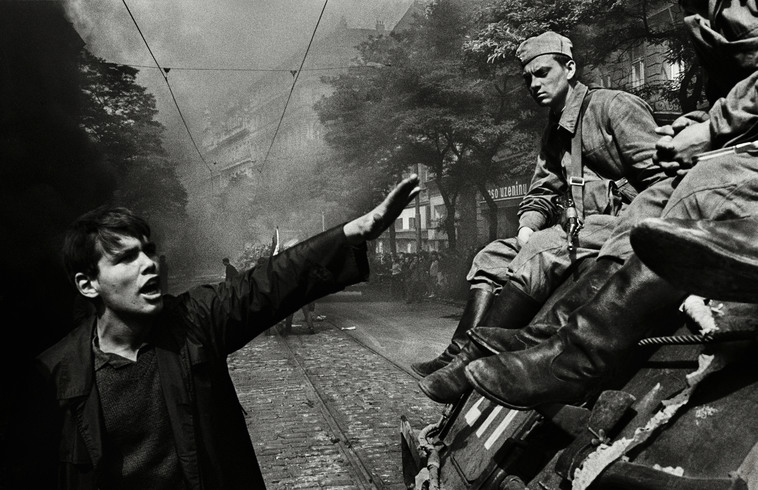22.03.2018 – 30.09.2018
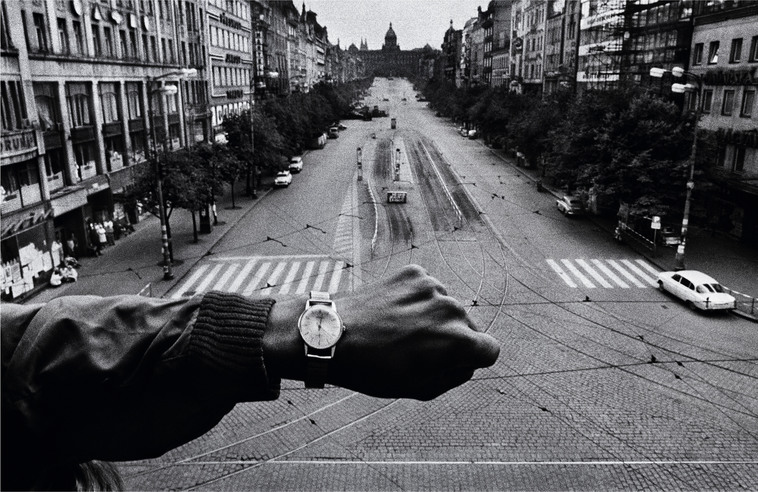
Concept: Josef Koudelka
Curator: Irena Šorfová
Exhibition design: Emil Zavadil
Graphic design: Aleš Najbrt
This large retrospective exhibition is being held at the Museum of Decorative Arts in Prague to mark the exceptionally generous gift that Josef Koudelka is making to his native land. It is also a celebration of the eightieth birthday of this leading figure of contemporary photography.
The exhibition is arranged chronologically in seven sections, each comprising an individual thematic series. The first, called Beginnings, consists of rare vintage prints from the late 1950s and early 1960s, which were made by Koudelka for his first exhibition, at the Semafor theatre, Prague, in 1961. The next section, called Experiments, consists of early studies, which are important for comprehending Koudelka’s the originality. The next two series were made in parallel – Koudelka’s key work, Gypsies, which is today widely considered a classic of world photography, and the Theatre series, in which he takes the stylization of form to the extreme, with striking graphic images displaying what is now perceived as Koudelka’s unmistakable style in the theatre photography of that period. Invasion 68, his large reportage series, has played a particularly important role in Koudelka’s life. It was the reason that he was forced to leave the country in 1970. The Exiles series took Koudelka twenty-five years to make. It consists of photographs capturing feelings of alienation, expulsion, and the impossibility of return. The last section of the exhibition consists of the monumental Panoramas, large-format photographs that were made over three decades, in which he charts out the influence human beings have had on the contemporary landscape.
Today, Koudelka’s photographs are widely appreciated primarily for their high artistic value and also for the fact that he has never made a large number of prints; some of the earliest photographs exist in only several copies. This contributes greatly to the uniqueness of the set of photographs he is donating to the Museum of Decorative Arts in Prague. The Museum is thus becoming one of the few institutions to have in its collections and care such a large set of Koudelka’s work. His work is also owned by prestigious institutions like the Centre Pompidou and the Maison Européenne de la Photographie in Paris, the Museum of Modern Art in New York, the Art Institute of Chicago, the J. Paul Getty Museum in Los Angeles, and the Victoria and Albert Museum in London.
To accompany the exhibition, a large book is being published by KANT, in Czech and English editions, containing a wide selection of Koudelka’s photos, documentary illustrations, and articles by Stuart Alexander, Josef Chuchma, Jan Mlčoch, Josef Moucha, Tomáš Pospěch, and Irena Šorfová, together with a reprint of an article by Anna Fárová first published in 1967.
The Koudelka: Returning retrospective is in a certain sense Koudelka’s return to his homeland, even though he continues to be a globetrotter, always on the road, photographing and working on his projects. During a life of ceaseless labour, he has repeatedly returned to his photographs, just as he has over the years repeatedly returned to the same places, topics, and subject matter, with the aim of achieving the best photographs. The Exiles series was twenty-five years in the making. Similarly, for twenty-five years he returned to places around the Mediterranean, resulting in the project of panoramic photographs called Vestiges. Koudelka’s work matures with time and even thirty or forty years later he believes that it makes sense for him to return to it and to publish new books that are relevant today.
During his life, Koudelka has always travelled his own path. He has never succumbed to outside influences or artistic trends. He has crossed the boundaries of various forms of expression, from reportage to graphic-art-like works, poetic documentary photography, and even large-format art. He has continuously reshaped his style and adapted it to the topic he is photographing. Koudelka unquestionably is among the most important contemporary photographers working today. He is often included amongst humanist documentary photographers, but it would be misleading to pigeonhole this distinctive character. Though many people have made good individual photographs, few have left such a remarkable legacy with their work as a whole.
The Museum of Decorative Arts in Prague has the largest collection of Czech photography in the world. It photos are regularly presented at dozens of exhibitions in this country and outside. Koudelka’s donation is exceptionally important. Together with the sets of photographs by František Drtikol and Josef Sudek, also donated to the Museum, the gift from Josef Koudelka will be among the most important sets of world photography in any Czech collection.
In parallel with the Koudelka: Návraty/Returning exhibition at the Museum of Decorative Arts, another exhibition, Koudelka: De-creazione, will be held at the Trade Fair Palace (Veletržní palác) of the National Gallery in Prague. It consists of a series of photographs that Josef Koudelka made for the Vatican’s first presentation at the Venice Biennale, in 2013. The series, inspired by the Book of Genesis, depicts three themes on the idea of destruction: the effects of time on human history and the natural environment, armed conflict, and the natural world versus the industrial world.
JOSEF KOUDELKA was born in Boskovice, Moravia, in 1938. Trained as an aeronautical engineer, he began to take photographs seriously in 1958. At that time, he photographed the world of several Prague theatres and the Romani. In 1968 he documented the Soviet-led Warsaw Pact invasion in Czechoslovakia. On the first anniversary of the invasion, these photos, attributed to P.P. (Prague Photographer), were published in many periodicals around the world, without Koudelka knowing about it beforehand. The photographs by the ‘anonymous Czech photographer’ earned him the Robert Capa Gold Medal of the Overseas Press Club. Today these photos are widely considered to be classic works of post-Second World War photojournalism. (To mark the fortieth anniversary of the invasion, a book of 249 of them was published, accompanied by articles and documents compiled by Czech historians; it has so far been published in twelve language editions.) Fearing possible retribution, he left the country in 1970, travelling to Great Britain, where he was granted political asylum. Since 1974 he has been a member of Magnum Photos. He later left for France, where, in 1987 he was granted French citizenship. In 1975, in collaboration with the French publisher Robert Delpire, he published the book Les gitans (The Gypsies; a revised and expanded version was published in Czech, as Cikáni, in 2011). This was followed, in 1988, by Exiles. Since that time, Koudelka has published fifteen books documenting the influence of human beings on the contemporary landscape. Among these publications are Černý trojúhelník/The Black Triangle (1994), Chaos (1999), Lime (2012), and Wall (2013). Koudelka’s works have been exhibited at the Museum of Modern Art and the International Center of Photography in New York, the Hayward Gallery in London, the Stedelijk Museum in Amsterdam, and the Palais de Tokyo in Paris. He has been awarded the Nadar Prize (1978), the Grand Prix national de la photographie (1989), the Grand Prix Cartier-Bresson (1991), the Hasselblad Foundation’s International Award in Photography (1992), and the Medal of Merit from the President of the Czech Republic (2002). In 2002, the French Ministry of Culture and Communication made him a Commander of the Ordre des Arts et des Lettres. He later received the Cornell Capa Infinity Award of the International Center of Photography in New York (2004) and the Artis Bohemiae Amicis award of the Minister of Culture of the Czech Republic (2010). A citizen of France and the Czech Republic, Koudelka is based in Paris and Prague.
The Museum of Decorative Arts – main building
17. listopadu 2
110 00 Prague 1
Opening Hours
Wednesday – Sunday 10 a.m.–6 p.m.
Tuesday 10 a.m.–8 p.m.
Monday closed
Addmission
full CZ 150 | concession CZ 80 | family CZ 250
